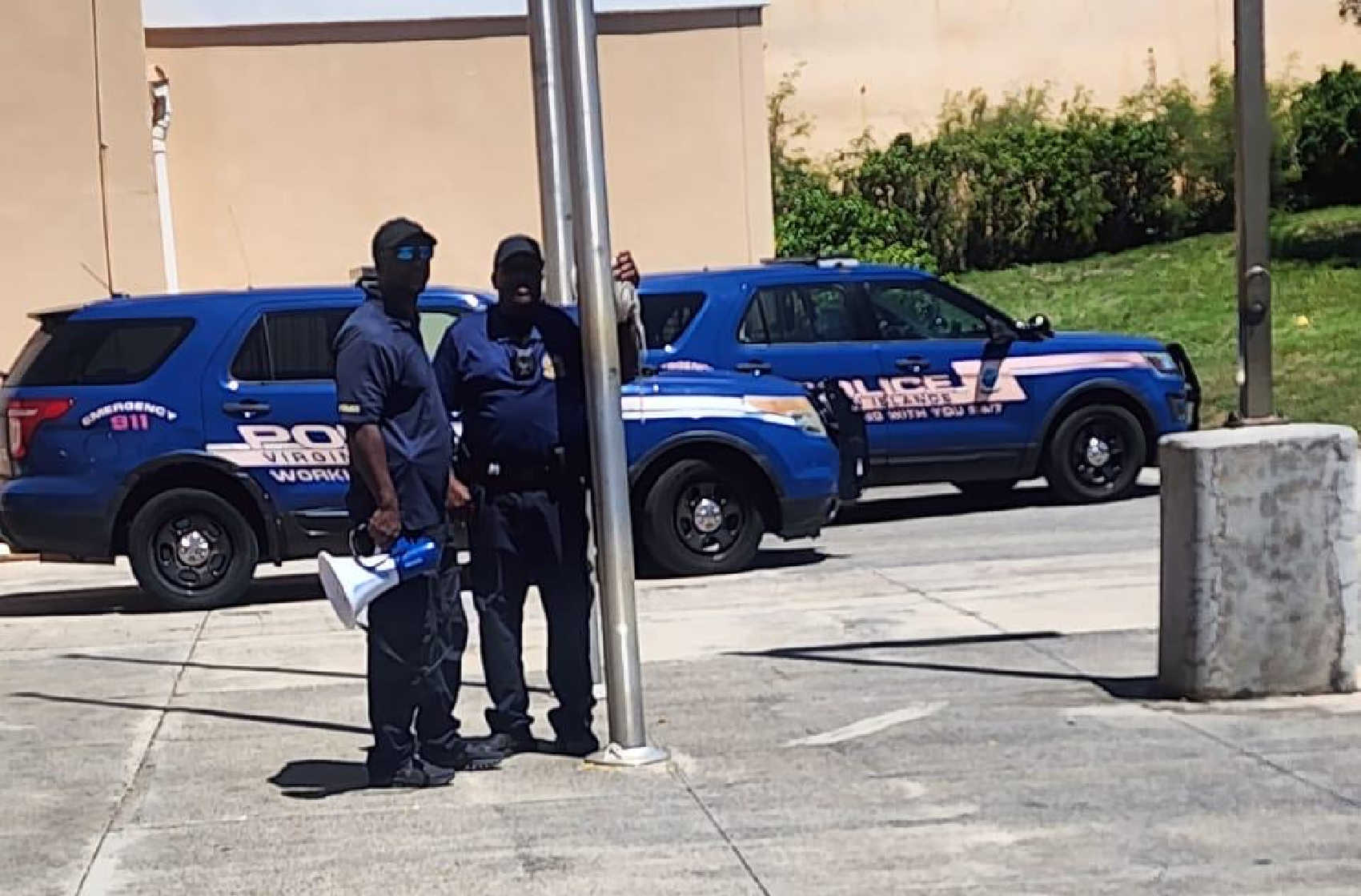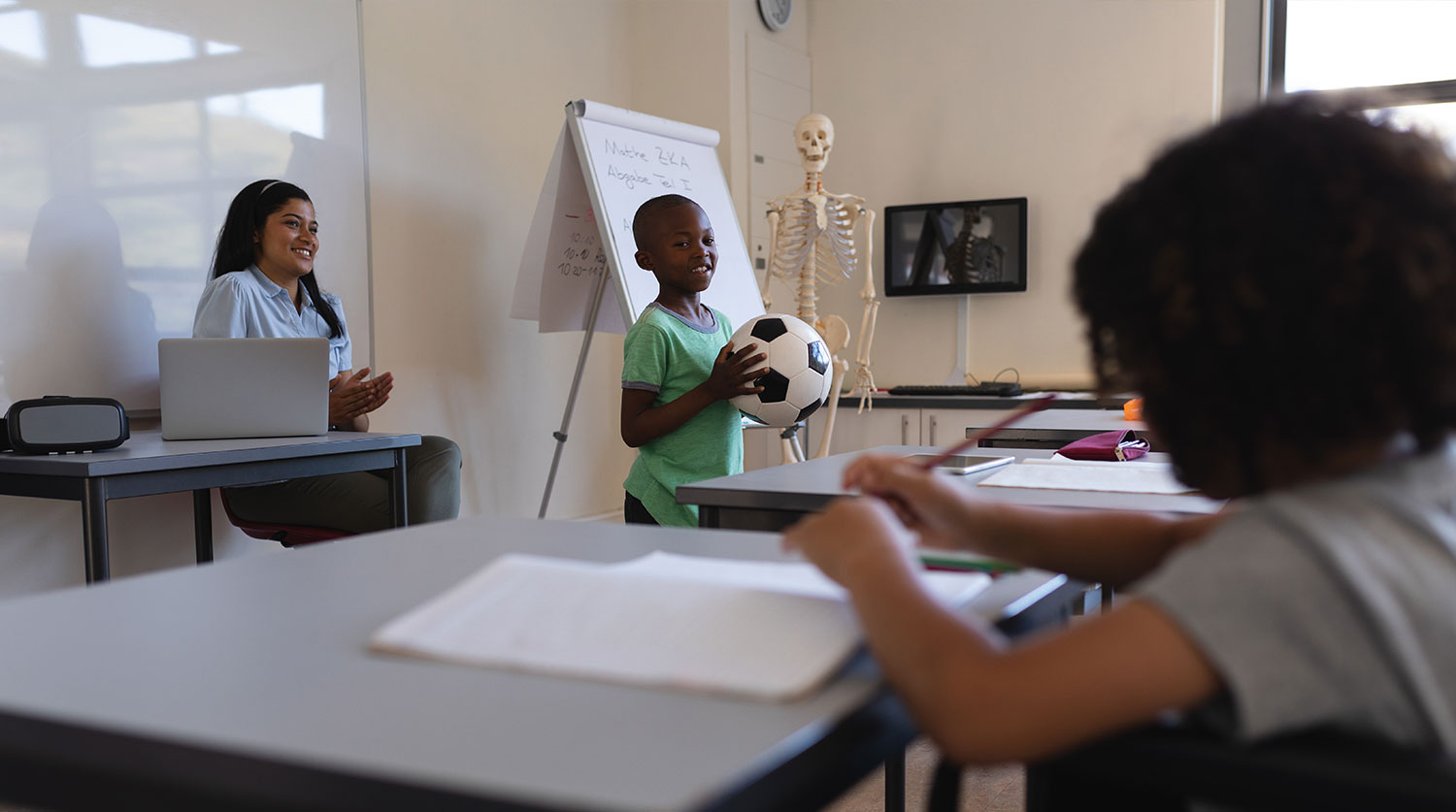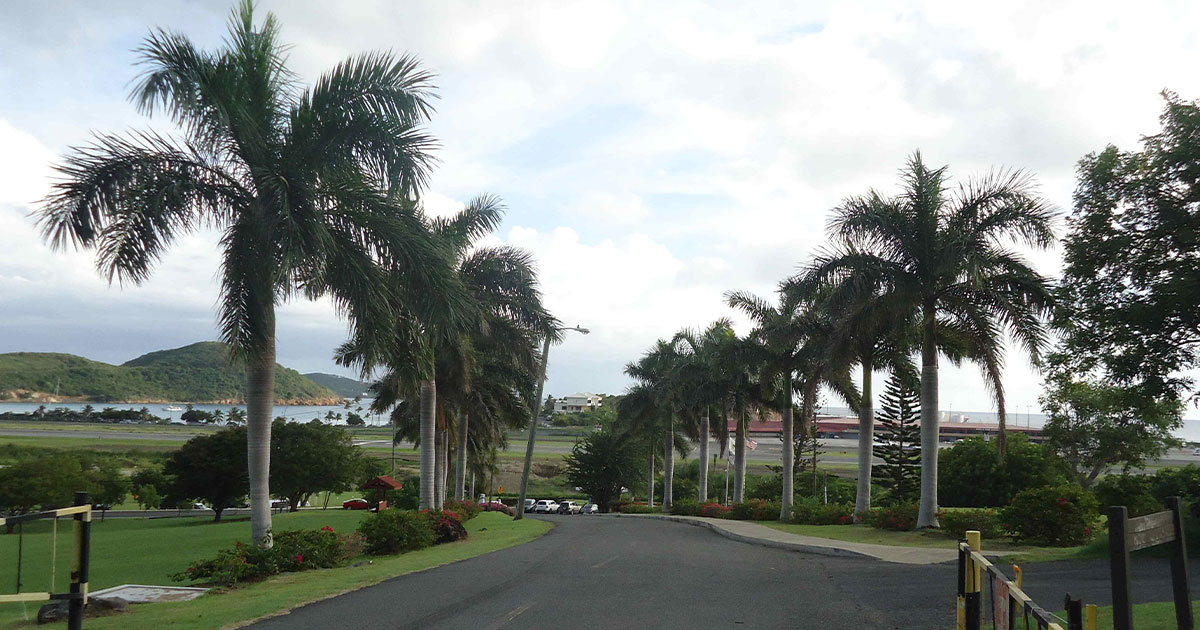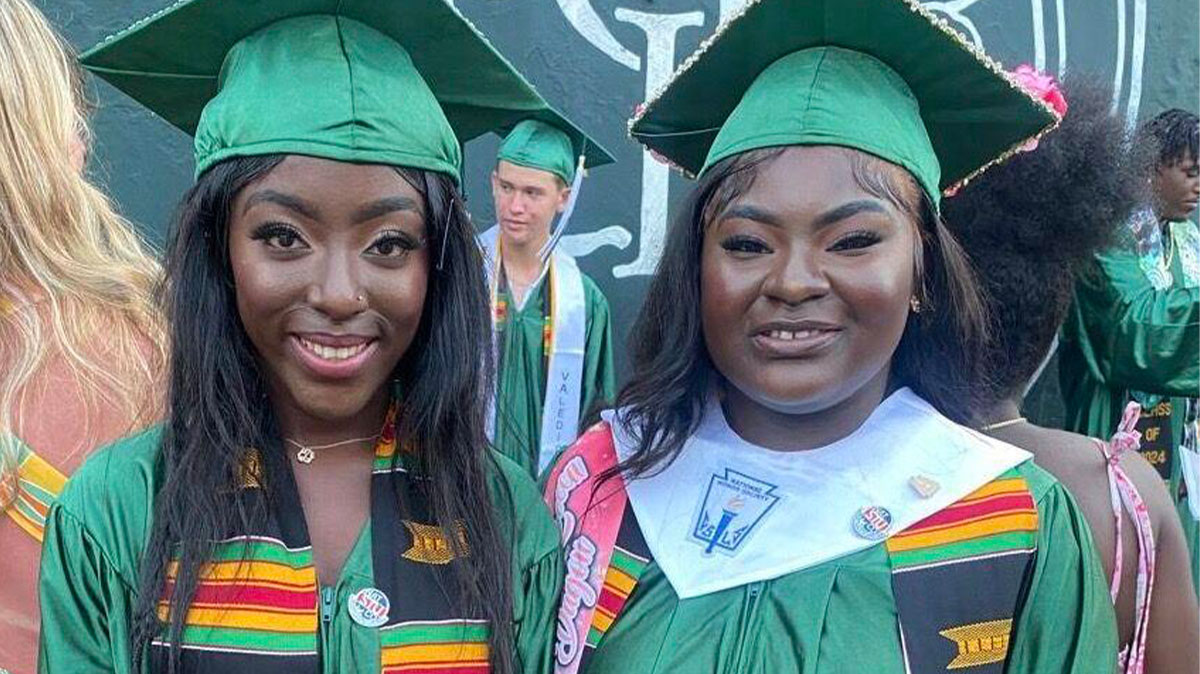Education
Addressing Teacher Safety: A Swift Response from the Department of Education to Incidents at Lockhart K-8 School

In response to recent concerns raised by educators at Lockhart K-8 School, including a teacher job action that led to an early dismissal for students in grades 4 through 8, the V.I. Department of Education has swiftly addressed the growing unease among its staff. This action came on the heels of alarming reports detailing violence and threats aimed at educators by students and, in some cases, their parents.
The heart of the issue lies in a series of troubling incidents at the school, which include threats and actual violence against teachers. The situation reached a tipping point on Wednesday, prompting the Department of Education to release a comprehensive statement acknowledging the severity of the matter.
Leontyne Jones, the President of the St. Thomas-St. John District AFT, outlined the contributing factors to this job action, citing a breakdown in communication between teachers and the school’s administration, infrastructural concerns, and, most importantly, the safety of the school’s educators. According to Jones, “There have been instances where students have threatened or even assaulted teachers.”
Shenica Grant, standing in solidarity with the educators, called for strong disciplinary measures against those responsible for the threats. Highlighting the issue of indiscipline among students, she criticized the role of parents in either neglecting or exacerbating their children’s behavior. Grant firmly stated, “It’s not acceptable for students to disrespect adults, threaten violence, or exhibit prejudice. These actions demand expulsion, not just suspension.”
The community has largely echoed Grant’s sentiments, as evidenced by feedback to the V.I. Consortium’s reporting on the matter. An incident where a teacher was followed home has particularly alarmed parents and community members, underlining the urgent need for a resolution to ensure teacher safety.
St. Thomas Police Chief Steven Phillip confirmed that officers were present at the school to ensure a peaceful dismissal process on Wednesday. Although there have been no formal complaints to the police, the issue has clearly resonated within the community.
The Department of Education has assured that normal school operations will resume, with a renewed focus on managing student behavior and enhancing disciplinary measures. Commissioner Wells-Hedrington and AFT President Jones have met with the affected teachers to discuss a way forward. “Disruptive behavior disrupts learning and compromises safety. Our priority is to ensure that our educational spaces are secure, allowing teaching and learning to proceed without fear,” stated Wells-Hedrington.
Wells-Hedrington’s commitment to the safety and security of teachers and students alike highlights the Department’s resolve to address these issues head-on. Furthermore, the Department stresses the crucial role of parents and guardians in the educational process, advocating for dialogue and cooperation over violence and threats.
This collective response from educators, law enforcement, and the Department of Education underscores a community united in its effort to maintain a safe and conducive learning environment for all.
Education
Educational Programs and Schools in the U.S. Virgin Islands

Educational opportunities in the U.S. Virgin Islands are diverse, offering students a comprehensive pathway from early childhood through higher education. With a commitment to nurturing young minds, the territory provides various programs and institutions that cater to the unique needs of its students. This article delves into the educational landscape of the USVI, showcasing the range of programs and schools that contribute to the academic and personal development of the community.
Early Childhood Education
Early childhood education is recognized as a crucial stage in the development of young learners in the USVI. The territory offers a variety of programs designed to prepare children for their educational journey, focusing on foundational skills in literacy, numeracy, and social interaction. Public and private institutions provide pre-kindergarten and kindergarten programs that emphasize a holistic approach to early learning, ensuring children are well-prepared for elementary education.
Primary and Secondary Education
The primary and secondary education system in the U.S. Virgin Islands is comprised of both public and private schools, each offering distinct advantages. Public schools in the territory are managed by the Virgin Islands Department of Education, which oversees the curriculum and standards to ensure students receive a quality education. The public school system is divided into elementary, junior high, and high school levels, providing a structured academic progression.
Private schools in the USVI offer alternative educational experiences, often with smaller class sizes and specialized curricula. These schools cater to various educational philosophies, including Montessori, parochial, and preparatory schools, offering parents and students a range of choices that align with their educational values and goals.
Specialized Programs and Vocational Training
In addition to traditional academic pathways, the U.S. Virgin Islands offer specialized programs and vocational training that equip students with practical skills and knowledge. The Career and Technical Education (CTE) programs in the territory focus on preparing students for the workforce by offering courses in fields such as hospitality, technology, healthcare, and trades. These programs are designed to provide hands-on experience and industry certifications, making graduates competitive in the job market.
Moreover, the USVI’s focus on STEM (Science, Technology, Engineering, and Mathematics) education has led to the development of initiatives aimed at enhancing students’ skills in these critical areas. Programs like the STEM Summer Enrichment Academy provide students with opportunities to engage in advanced learning experiences, preparing them for future careers in science and technology.
Higher Education Institutions
For students seeking higher education, the University of the Virgin Islands (UVI) is the primary institution in the territory. UVI offers a wide range of undergraduate and graduate programs, including degrees in business, education, liberal arts, science, and technology. The university is known for its commitment to research and community engagement, providing students with opportunities to participate in projects that address local and global challenges.
UVI also offers continuing education and professional development programs, ensuring that lifelong learners in the territory have access to resources that support their personal and professional growth. The university’s dual-enrollment programs allow high school students to earn college credits, giving them a head start on their higher education journey.
Challenges and Future Directions
While the educational system in the U.S. Virgin Islands offers numerous opportunities, it also faces challenges that need to be addressed to ensure continued progress. Issues such as funding, infrastructure, and teacher retention are ongoing concerns that the territory is working to resolve. The government and local organizations are focused on improving the quality of education through initiatives aimed at modernizing facilities, enhancing teacher training, and increasing access to technology.
Looking ahead, the future of education in the USVI is poised for growth and innovation. Efforts to integrate digital learning, expand vocational training, and strengthen partnerships with global educational institutions are key components of the territory’s educational strategy.
The educational landscape in the U.S. Virgin Islands is one of diversity and opportunity. With a strong foundation in early childhood education, comprehensive primary and secondary schools, specialized programs, and a dedicated higher education institution, the USVI is committed to providing its students with the tools they need to succeed. As the territory continues to evolve, so too will the educational opportunities available, ensuring that future generations are well-prepared for the challenges and opportunities ahead.
Education
Education in USVI: Schools and Universities

In the U.S. Virgin Islands, the education system is designed to provide comprehensive learning opportunities for all residents, from preschool to higher education. The territory emphasizes both public and private education, ensuring that students receive quality instruction that prepares them for future careers and higher education.
Primary and Secondary Education
The public education system in the Virgin Islands operates under the same standards as U.S. public schools. Education is free and compulsory for children from ages 5.5 to 16. The system includes over 40 public schools, comprising elementary, junior high, and senior high schools. Additionally, the territory features vocational schools that offer specialized training in various trades.
Public schools benefit from federal initiatives such as Head Start, nutrition programs, and Upward Bound, which support early childhood education and help prepare high school students for college. The student-teacher ratio in public schools is approximately 14:1, ensuring that students receive adequate attention and support.
In addition to public schools, the USVI hosts numerous private and parochial schools, which provide alternative education options. These institutions cater to a diverse student population, including those seeking religious-based education. The presence of private schools adds to the overall educational diversity within the territory.
Higher Education
The U.S. Virgin Islands is home to the University of the Virgin Islands (UVI), the principal institution of higher education in the territory. UVI is a public, co-educational, historically black land-grant university offering associate, bachelor’s, and master’s degrees across its two campuses in St. Thomas and St. Croix.
UVI’s academic offerings are extensive, with over 43 degree programs that include disciplines such as Data Science, Nursing, Business Administration, and Education. The university prides itself on small class sizes, maintaining a student-teacher ratio of 12:1, which allows for personalized attention and a supportive learning environment.
One of UVI’s notable initiatives is the Free Tuition Program, which provides tuition-free education to eligible residents of the Virgin Islands. This program is designed to make higher education accessible to more residents, thereby enhancing educational attainment and opportunities for the local population.
Moreover, UVI actively engages in research, service, and outreach programs, contributing to the social and economic development of the Caribbean region. The university also offers study abroad opportunities and maintains partnerships with institutions worldwide, promoting a global perspective among its students.
Challenges and Opportunities
Despite the robust education system, the USVI faces challenges, particularly in the wake of natural disasters. Hurricanes Irma and Maria severely impacted the territory’s infrastructure, including schools. Many schools are still recovering, and reconstruction efforts are ongoing, supported by substantial funding from the Federal Emergency Management Agency (FEMA).
Programs such as “From Farm to School” aim to enrich students’ learning experiences and promote healthy eating habits by incorporating locally grown produce into school meals. This initiative reflects the territory’s commitment to holistic education and the well-being of its students.
Conclusion
Education in the U.S. Virgin Islands is characterized by a blend of public and private institutions that offer a wide range of learning opportunities from early childhood through higher education. The system’s alignment with U.S. standards ensures high-quality education, while local initiatives and federal support help address unique challenges. With ongoing efforts to improve infrastructure and expand access to higher education, the USVI continues to invest in the future of its students.
Education
Gifft Hill School Graduates Awarded Ruby Rutnik Scholarship

Two Gifft Hill School graduates have been awarded the prestigious Ruby Rutnik Scholarship for the 2024-25 academic year. De-necia Baxter and Liandra Dagou, both aspiring nursing students, will each receive $2,500 towards their tuition as they embark on their college journeys at the University of the Virgin Islands.
De-necia Baxter and Liandra Dagou, recognized for their academic achievements and community involvement, were selected for their commitment to pursuing nursing degrees. Their passion for healthcare and dedication to their studies have set them apart as deserving recipients of this scholarship, which honors the memory of Ruby Rutnik, a former standout softball player and beloved member of the St. John community.
The Ruby Rutnik Scholarship Fund, established in memory of Ruby Rutnik who tragically passed away in 1996, has been supporting young women from St. John in their educational pursuits for over two decades. Ruby’s parents created the fund and a related softball tournament to provide financial assistance to students, ensuring that her legacy continues to inspire and support the community she loved. The scholarship has awarded over $199,000 to more than 60 recipients since its inception.
De-necia Baxter and Liandra Dagou’s selection underscores the fund’s mission to empower young women through education. Both students have expressed their gratitude and excitement for the opportunities this scholarship will provide as they start their college careers.
De-necia Baxter has been actively involved in various community service projects and has shown a strong interest in healthcare from a young age. Her dedication to her studies and her compassionate nature make her an ideal candidate for the nursing program at the University of the Virgin Islands. Liandra Dagou, equally passionate about healthcare, has excelled academically and participated in numerous extracurricular activities. Her commitment to helping others and her academic prowess have earned her this well-deserved recognition.
The Ruby Rutnik Scholarship not only provides financial support but also serves as a tribute to Ruby’s enduring spirit and the positive impact she had on those around her. The scholarship fund continues to receive support from the community, with contributions ensuring that more young women can achieve their educational goals.
Contributions to the Ruby Rutnik Scholarship Fund can be made by sending checks payable to Gifft Hill School, noting RRSF on the memo line, to GHS, PO Box 1657, St. John, VI 00831. This support is crucial in maintaining the scholarship and honoring Ruby Rutnik’s legacy for future generations.
As De-necia Baxter and Liandra Dagou prepare to begin their college education, the Gifft Hill School community celebrates their achievements and looks forward to their future successes in the field of nursing.
-

 Education1 year ago
Education1 year agoEducation Board Seeks Input on Schools Through Comprehensive Survey
-

 Education2 years ago
Education2 years agoCTE Board Enthusiastic About New Curriculum Standards, Yet Anxious Over Apprenticeship Support
-

 Crime2 years ago
Crime2 years agoRegistered Sex Offender Detained for Illegal Firearm Possession During Annual Surveillance Drive
-

 Videos3 years ago
Videos3 years ago2022 Gubernatorial Election: Voters Speak Out
-

 Development1 year ago
Development1 year agoCosts Surge as Donoe Estates Housing Project Resumes with New Contractor
-

 Videos3 years ago
Videos3 years agoGubernatorial Teams Celebrate St. Croix’s Bull & Bread Day
-

 Videos3 years ago
Videos3 years agoWakanda’s Female Might: A Dive into ‘Black Panther: Wakanda Forever’
-

 Crime2 years ago
Crime2 years agoSt. John’s Westin Resort Scene of Armed Robbery, Prompting Heightened Police Vigilance




